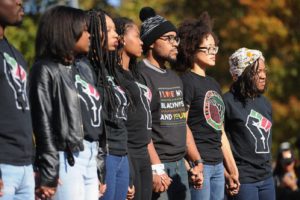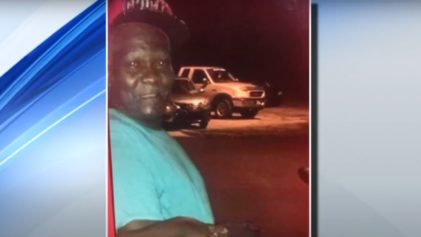In a case of collective punishment, there is an attempt in some sectors of society to place blame for the killing of five Dallas police officers on Black protesters, the #BlackLivesMatter movement and the Black community in general. This emerging white reactionary narrative seeks to render Black activism and criminality as synonymous. However, Black rage and audacious Black protest are agents for positive social change that are constitutionally guaranteed, seek to keep America honest, and must not be silenced.
The officers were killed in an ambush-style attack on the evening of July 7 during a peaceful Black Lives Matter protest. The alleged sniper killed by authorities was identified as Micah Johnson, 25, a veteran who was a member of the U.S. Army Reserve, according to Reuters. And according to Dallas police, Johnson, who was Black, wanted to kill white police officers.
Reactionary conservatives responded by blaming President Obama and Black people. Former Illinois Rep. Joe Walsh tweeted: “This is now war. Watch out Obama. Watch out black lives matter punks. Real America is coming after you.” Others followed suit.
#BLM is a hate group & a terrorist organization. It is a cancer to our society and it must be treated as such. It seeks to destroy. #Dallas
— R.D. Hutch (@LawlessPirate) July 8, 2016
Time for the left to dial back its racist anti-white rhetoric in the aftermath of #Dallas.
— Paul Joseph Watson (@PrisonPlanet) July 8, 2016
In response, Black Lives Matter made its position clear. “This is a challenging moment, but we must maintain the integrity of our message and moral movement,” wrote Opal Tometi, one of the co-founders of the Black Lives Matter movement, in The Huffington Post. “We still have the moral high ground, and we cannot allow for it to be undermined.”
#BlackLivesMatter advocates dignity, justice and freedom. Not murder.
— Black Lives Matter (@Blklivesmatter) July 8, 2016
I hate police brutality. I don’t hate police. This violence is wrong on every level. It is as American as apple pie, but wrong nonetheless.
— Shaun King (@ShaunKing) July 8, 2016
Further, Trevor Noah of The Daily Show exposed the false narrative that equates pro-Black with anti-police.
The demonization of Black Lives Matter and criminalization of anti-police brutality activism has followed the movement since its inception over the past two years. The move to paint Black protesters as cop killers who place law enforcement in harm’s way was employed, despite the fact that the number of police officers intentionally killed in the line of duty is at its second lowest point in the past 12 years, according to The Guardian.
In December 2014, Ismaaiyl Brinsley, 28, fatally shot NYPD officers Wenjian Liu and Rafel Ramos in Brooklyn. Before killing the officers “execution style” in Brooklyn, he posted on Instagram that he would be “putting wings on pigs today,” according to the New York Daily News. Patrolmen’s Benevolent Association head Patrick Lynch declared the NYPD would shift to a “wartime”police department, and declared that New York Mayor Bill de Blasio–who expressed sympathy with Black Lives Matter and concerns about the safety of his Black son in the midst of police officers–had blood on his hands. Other detractors from the law enforcement community and elsewhere proclaimed that “Blue Lives Matter” and “White Lives Matter.” Moreover, Republican presidential candidates such as Ted Cruz and Chris Christie claimed the Black-led movement called for the murder of police officers, an assertion that certainly plays well with conservative white Republican voters who are hostile to Black interests.
Meanwhile, police violence is nothing new, as Black people have been gripped by it for hundreds of years, since the days of the slave patrols, the first police forces. Black lives did not matter when they were easily snuffed out by white men who were deputized to keep Blacks in their place and empowered to terminate Black life. During Jim Crow, the police and the Ku Klux Klan often were one and the same, and civil rights workers were subjected to whips, lashes, billy clubs and four-legged police dogs, led by two-legged police dogs. Further, the urban rebellions of the 1960s were caused by racially-motivated acts of police brutality. And in 2006 the FBI issued a report warning of the problem of white supremacist infiltration into law enforcement.
Today, people of color face racial violence, harassment and abuse from the police, and daily affronts to their dignity through stop-and-search and broken windows policing. Excessive force and leaves lasting emotional, psychological and physical scars and death. Yet the criminalization of Black people continues through collective punishment when, as is apparently the case now, a Black man has committed and act of mass murder. When a lone white men commit atrocities, such as the case of Dylann Roof gunning down nine people at Emanuel AME Church in Charleston last year, that individual is regarded as mentally deranged, and the greater white community does not bear the burden of that person’s crimes. Yet now, #BlackLivesMatter is being branded as a criminal element, and by extension the entire Black community, in an effort to silence those crucial voices in the struggle for change.



